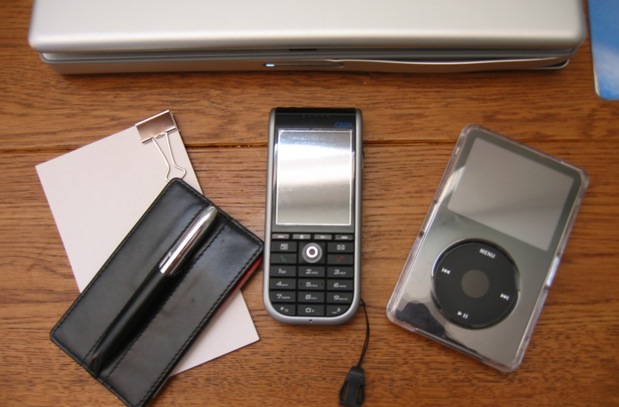It is a Thursday night. Caitlin Iglehart (’10) is sitting in her kitchen working studiously. In addition to trying to complete her math homework, she has “Tik Tok” by Ke$ha sounding from her laptop. “I usually only listen to music while I’m doing my math or Spanish homework, or when I’m checking my conferences,” she says.
Multitasking At Urban
On a scale of multitasking tendencies, Iglehart’s propensities are nothing compared to someone like Jacob Miller’s (’11). On an average night, “I always have Firstclass, Word, iTunes, Safari, and probably GarageBand open,” Miller says. “And within Safari I probably have three windows open. But I still get my stuff done in like a half an hour to an hour.”
Such stories trigger the following questions: When does the Internet actually begin to inhibit the aid it is meant to provide? Is it possible to multitask online and produce a high caliber of work? Do students feel multitasking has become a necessity during work?
In a survey of 100 Urban students, 68 percent said that they can complete homework satisfactorily while multitasking online. Only 18 percent said that they cannot, while multitasking, achieve the same level of work that they can when they are focused on only one task. These results give rise to a new question: has multitasking become habitual?
Multitasking Among Teens
In a March 2006 article entitled “The Multitasking Generation,” Time magazine interviewed Bronte Cox, 14, about her multitasking tendencies. “My parents always tell me I can’t do homework while listening to music, but they don’t understand that it (actually) helps me concentrate,” said Cox.
Urban history teacher LeRoy Votto, who has been teaching at Urban since 1980 and can remember a time before computers were the norm, comments that “(students are) so connected to the (First Class) conferences …(I) wonder if we’re just becoming so connected to the computer, that listening across the board – maybe even listening to each other — has become harder.” Votto acknowledges that perhaps he has a “totally sentimental or unrealistic” notion about the role of computers today.
Negative aspects of multitasking are not exclusive to Urban. In their Nov. 9, 2009 issue, The GW Hatchet covered a story about how professors were beginning to prohibit the use of electronics in class. The article states that the effects computers and cell phones were having on students’ attention in classes was becoming intolerable for teachers.
“(Multitasking is) rude to the other students and distracting and certainly people in a classroom ought not to be degrading other students’ learning experiences. That’s just not right,” said Political Science Professor Chris Deering.
Votto agrees. “In terms of attention, I really think the computer has inhibited attention because (the computers) are so good that (students) can take notes, maybe even too many notes, but then it also buries them in the computer. It’s hard to make eye contact (with) students, even if I’m trying to just get (simple) information across.”
The Multitasking Generation?
According to Time, “human beings have always had a capacity to attend to several things at once…mothers have done it since the hunter-gatherer era.” However, the main difference between the multitasking of previous generations and the kind we do involves the “warp speed” of the Internet. While human beings inevitably multitask, the problem is the lightning speed at which we do it.
Director of Technology Howard Levin talks about the fact that in a world where human beings already are prone to multitasking, maybe the problem isn’t the laptop – it’s the superfluous lives we lead that drive us to distraction. “Whether you have a laptop or not you’re going to be doing the same types of things at home. It’s not a good thing or a bad thing, it’s just a reality. And it’s a reality that [will] not go away.”
Levin also comments on the negative connotation that excessive computer use has received, referring to something he calls “teeter-totter technology – the good stuff outweighs the bad.” In other words, he believes that “it’s much better to have students learn to deal with ubiquitous access (to computers) in high school with some level of supervision by the teacher(s) than to be thrown into college while having 24/7 access.”


